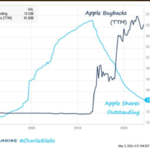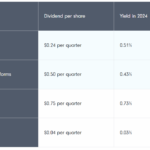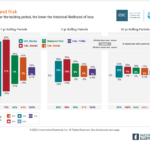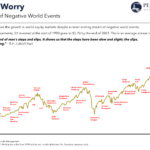The global list of Multi-National Companies(MNCs) are dominated by American and European firms. These mega corporations have revenues in the billions and employ thousands of workers in countries outside of their home countries. Based on revenues some of the firms are bigger than the economies of small and medium size countries. In the global marketplace firms compete fiercely against one another to gain market share. Competition is especially high between U.S. and European multinationals as they try to take a bigger slice of the global market for their products. In this post let us compare five American firms from five different industries to their European peers.
1. Consumer Goods:
Based in Cincinnati,OH Procter & Gamble Co (PG) was founded in 1837 and operates in about 180 countries. P&G owns hundreds of brands including Ariel, Dawn, Downy, Duracell, Always, Bounty, Charmin, Pampers, Crest, Gillette Mach3 to name a few.Currently the stock has a dividend yield of 3.16%. The five-year price return (excluding dividends) is 27% and the 10-year return is 50%. PG had a 2:1 stock split in 2004 when the price was about $111.00. Today the stock closed at $81.39. A $10,000 invest five years ago would be worth $15,737 according to S&P data.
Unilever PLC (UL) is one of P&G’s competitors based in the UK-Netherlands. Though Unilever also trades as UN for its Dutch version called the Unilever NV I have used UL due to the 0% foreign dividend withholding taxes for US shareholders. Founded in 1885 Unilever also owns a multitude of brands some of which are Dove, Rexona, Axe, Lux, Sunsilk, Lipton, Magnum, Cif, Domestos, Persil, Omo and Surf.Unilever’s brands are much more popular in many of the former British colonial countries than P&G’s brands due to historical connections.Currently UL has a 3.44% dividend yield.The five-year price return and 10-year price returns are 43% and 97% respectively. A $10,000 invest five years ago would be worth $17,977. UL had a 9:5 stock split in 2006.
Though this is a single example, in this case Unilever’s stock has yielded better returns for investors than P&G. So investors may want to consider owning foreign multinationals than simply going with domestic multinationals.
2.Chemicals:
US Multinational: The Dow Chemical Company (DOW)
Current Dividend Yield: 3.51%
5-year Price Return: 61%
10-year Price Return: 1%
European Peer: BASF SE (BASFY)
Current Dividend Yield: 3.89%
5-year Price Return: 58%
10-year Price Return: 194%
3. Food:
US Multinational: Mondelez International, Inc (MDLZ)
Current Dividend Yield: 1.69%
5-year Price Return: 15%
10-year Price Return: 6%
European Peer:Nestle SA (NSRGY)
Current Dividend Yield: 3.20%
5-year Price Return: 47%
10-year Price Return: 183%
4. Oil:
US Multinational: Exxon Mobil Corporation (XOM)
Current Dividend Yield: 3.24%
5-year Price Return: 25%
10-year Price Return: 47%
European Peer: Royal Dutch Shell plc (RDS-B)
Current Dividend Yield: 5.83%
5-year Price Return: 8%
10-year Price Return: -2%
5.Tobacco:
US Multinational: Altria Group Inc. (MO)
Current Dividend Yield: 3.86%
5-year Price Return: 156%
10-year Price Return: -19%
European Peer: British American Tobacco PLC (BTI)
Current Dividend Yield: 4.39%
5-year Price Return: 60%
10-year Price Return: 187%
Please note that countries such as Switzerland, Germany and Netherlands have high dividend withholding taxes. However they can recouped if stocks are held in a regular account. If those stocks are held in retirement accounts such as IRA or 401Ks then the dividend tax will be lost forever.Since I illustrated the sample stocks with ADRs any foreign currency issues do not apply.
This simply exercise shows that it is possible to earn higher returns by venturing beyond the U.S. shores. Though it is only a small sample size similar returns can be found with many other foreign stocks.
Note: Dividend yields and returns noted above are as of Mar 11, 2015. Data is known to be accurate from sources used.Please use your own due diligence before making any investment decisions.
Disclosure: No Positions




Good work.
Thank you.